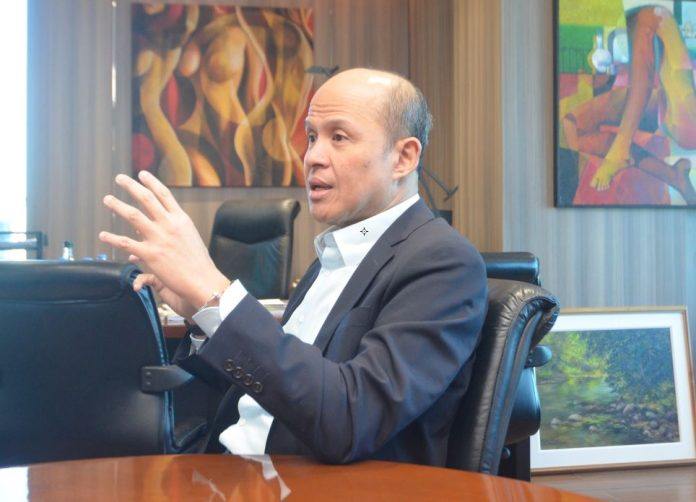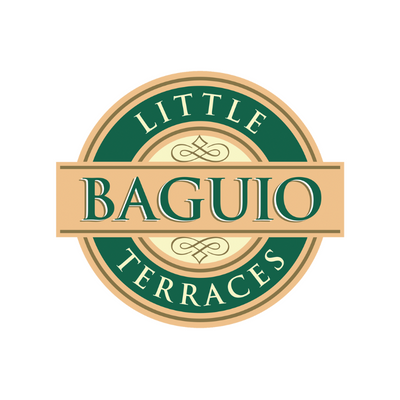The president of Empire East, Anthony Charlemagne Yu, wears many hats. Depending on when you first met him and where, and eventually your succeeding dealings with him, you would have a different knowledge and perspective of the gentleman.
Charlie, as he is called by friends and family, has been practicing law since the early 1990s. A graduate of the University of the Philippines College of Law, where he has served as a Law professor, Charlie has worked as an associate of a top law firm, a consultant in the Philippine Senate and vice president for Corporate and Legal Affairs of Ten Knots Development Corporation, the developer of the world famous El Nido Resorts.
An activist and an advocate for social reforms since his college days, he is renowned for his many good works in environmental conservation and community development especially as president of the El Nido Foundation and a board member of Culion Foundation. His constant quest for the excellent education of the Filipino youth manifests best in his capacity as chairman of the board and president of the Laguna BelAir Science School and as chairman of the board of ERDA, a group of foundations started by the legendary Jesuit, Fr. Pierre Tritz, S.J., for the purpose of providing education and extending educational assistance to the poorest of the poor in the country.
A look at his social media accounts will tell you he is a consummate diver, an outstanding family man and a good judge of beauty and character, the last becoming evident during the beauty contest season when he is asked to sit as a member of the board of judges that decides on the merits of the beauty title hopefuls.
I first met Charlie at the Ipil Residence Hall in the University of the Philippines in Diliman where, like the majority of law students, he was focused on his studies. Yet, unlike many law students, he was very active in social and political issues then and had a full teaching load at the Ateneo de Manila University, where he also taught for many years. In Ipil Hall, one could have a glimpse of Charlie alone in his room, with his door ajar, or the residence hall’s study room seated in front of a pile of books in the company of his classmates. Right after graduation, he left to finish his Master’s Degree at the University of London. He was offered many jobs after his studies in London but he opted to return to the country.

"How could one decline a sincere request to help him fight the fire? It was not easy because I was an outsider coming in to head a company. But it just had to be done."
His rise in the corporate world has been hardly surprising, given that he always looked the part of one who was most likely to succeed, first because he was always reading, and secondly, he was generous with his smile. Like many students who came from good families, he never made a show of his class and breeding, although one saw a certain elegance and propriety in his manners alongside his nonchalant way of dressing. Most often, he was in a white polo shirt and a pair of dark slacks. He always had a pair of glasses, its ends attached to a string.
Charlie’s success in the real estate sector may be traced to his understanding of the Filipino, which comes second to his natural sense of fairness and compassion. It is part of the family lore that when he was approached by the workers of his family’s company regarding some complaints against the management, he supported them in their decision to go on strike against the management and even joined them in the picket line.
We will have a separate profile of Charlie soon to kick off our occasional series on the leaders of the real estate industry. It will be our way of introducing them, the movers of the sector, beyond what is obviously seen of them by their staff, associates, clients and the general public.
Daily Tribune visited Charlie in his office in Uptown Bonifacio.
Meeting Andrew Tan
Daily Tribune (DT): How did it happen that you ended up working for Dr. Andrew Tan? I am asking only because I knew that you were doing well in your previous jobs and Dr. Tan was probably just starting to become a big name.
Anthony Charlemagne Yu (ACY): Sometime in the mid-1990s, I was referred to him by a senior officer of the company who advised me that, as Megaworld was growing very fast, Dr. Tan was looking for professionals with the right academic background and professional skills. I was asked if I am willing to meet with him. While I was not actively looking for another job since I was very happy where I was, I thought that there is no harm in meeting new people even if only to learn from them. And so, I said yes.
DT: What were your first impressions of Mr. Tan?
ACY: I was invited to his office at Solidbank Building then. After being seated in the conference room for less than two minutes, he came in without any pomp and circumstance and introduced himself. We spoke for about two to three hours and I left his office with a very strong impression of a man who has a very clear vision for the company and the country. He was a great story teller and he spoke of his plans and how such plans would require good people to carry them through. He made you feel that you would be the most important recruit he was eyeing for. He spoke about his philosophy and the need to keep the company professionally managed. We spoke again on other occasions and, in a few months’ time, I joined him since it struck me then that the future belonged to such a forward-thinking visionary, who has a very strong sense of purpose in life.
DT: He must be special.
ACY: I would be the most biased person to answer that question! If Dr. Andrew Tan were not special, I would never have left a job I loved, and stayed with him all these years. He is beyond comparison. Passionate about his vision, always mindful of the feelings of people, and extremely committed to the objectives that have been set, Dr. Tan is a rare breed.
DT: So, from Megaworld, how did you become the president and CEO of Empire East?
ACY: Less than a year after I joined him in Megaworld Land, the Philippines was hit by the Asian financial crisis, which brought down many companies. It was then that he called me to his office and asked me to head Empire East. My initial reaction was to decline since I was merely in my early 30s, and I honestly did not think that I was capable of leading a publicly-listed company and one of the leading real estate developers in the country. Worse, it was at the height of the Asian financial crisis. However, in the context of the situation then, when the country was in flames and the different companies were gravely affected by the crisis, how could one decline a sincere request to help him fight the fire? It was not easy because I was an outsider coming in to head a company. But it just had to be done.
Difficult times
DT: What was the difference between Megaworld and Empire East?
ACY: Megaworld, as it was envisioned, was a supermarket of real estate products from different market segments. Dr. Tan, even in the early 1990s, saw the need for market segmentation and decided to spin off the broad middle-income segment to Empire East, while Megaworld continued with the high-end market. Later, other companies were created to handle the lower segments of the market. Today, this scheme of creating different companies to handle the different market segments is followed by everyone in the industry.
DT: Oh, wow, so your company is the original one.
ACY: Yes, like many other innovations, our group is known to be the trailblazer in many aspects of the real estate industry. The idea of market segmentation for different companies within the group is one such example, which has become the norm now in the Philippine real estate sector.
DT: How did the crisis affect you?
ACY: It was surreal! A lot of people today talk about surmounting the Asian financial crisis but unless one has actually gone through it, it would be very hard to explain the magnitude of the problem and the wave of hopelessness that was prevalent during those times.
It was a time when sales suddenly dried up and collection came in trickles. Banks stopped lending. Many companies, including real estate companies, went belly up. Even hotel coffee shops became ghost towns! How does one conduct business when interest rates reached more than 30 percent, and every day, there was news of another bankruptcy in the Philippines, Thailand, Malaysia and even Japan. The peso dropped from P26 to the dollar at the start of the crisis to P53 by 2001. The economy was spiraling downwards and there was no light at the end of the tunnel. Yet, we would like to think that it was those toughest moments in our corporate history that galvanized our group to be at our best. This experience became an indelible part of the structural mooring from which the present conglomerate of Dr. Tan is anchored on. Indeed, adversity builds character.
Surviving the crisis
DT: How did you turn things around? I mean, from that crisis. How did you manage to survive?
ACY: It was not easy. Regardless of the size of the business enterprise then, everyone suffered. To survive, we needed to be different from everyone. We needed to stay focused. Instead of wallowing in self-pity and being consumed by the herd mentality that things are hopeless, we needed to think of a way out.
In Empire East, we were certain that there is a huge market for our market segment. With the burgeoning population growth and the lack of any comprehensive housing program in place, one does not have to be a rocket scientist to realize that there is a huge housing backlog in the country. But sales were not coming in during the crisis years. Obviously, there was demand and there was also supply, yet supply was not being taken up because there was a disjunction between the supply and the demand for housing units.
It was at this point that we introduced a completely new financing scheme. Whereas buyers used to pay 30 percent down payment to reserve a unit and then pay monthly amortizations for three years and a lump sum balance upon turnover of the unit, Empire East decided to do away with any down payment. Instead, we would only require monthly amortizations equivalent to the amount we calculated as the disposable monthly income of our market segment, with small lump sum payments at the end of every 12-month period. These financing terms were unheard of and were even considered foolhardy by many. But how can we honestly claim to serve the basic needs of our market segment if the market could not have a financing scheme that would allow them to own a unit they can call home.
DT: What was the result?
ACY: We decided to launch an 800-unit project, the Greenhills Garden Square, at the height of the crisis, a time when not a single developer launched any project for years. On the day of the launch, every single unit of the project was sold out and we had a waiting list on top of that. This was a record-breaking event for the industry, and it happened in the midst of a deepening crisis then.
It was then that he called me to his office and asked me to head Empire East. My initial reaction was to decline since I was merely in my early 30s, and I honestly did not think that I was capable of leading a publicly-listed company and one of the leading real estate developers in the country.
DT: How did that happen?
ACY: The success of this record-breaking project illustrated two things. First, there is really a huge demand for housing units in the market. Second, as long as the developer is responsive to the needs of the market, people will come. The financing terms were met with skepticism but they turned the corner for us.
DT: What did you do next?
ACY: With that initial success, we immediately replicated it in Xavier Hills and again, the project was sold out in record time. We moved on to a much bigger project, the 3,000-unit California Garden Square and we sold everything out. It was only then that other developers started following the same financing scheme. To this date, all the major market players still use the same financing terms which Empire East introduced at the height of the crisis about 20 years ago.
DT: You were trail-blazers.
ACY: Until then, it appeared like the real estate market was doomed. We would like to think that, in our little way, we contributed in turning the industry around and helping the Philippine economy back on track.
Creative marketing
DT: What about your marketing strategies? Did you advertise a lot?
ACY: Marketing during a crisis can be a very frustrating experience. It involves a lot of creativity. Unlike PR and advertising, which more often than not is a function of budget, marketing is far more cerebral. During good times and with very strong brand equity, marketing is a breeze. However, strategizing and thinking beyond the box, especially during difficult times with hardly any budget, require a different skills set. Fortunately, we have a very good team in place. During the crisis, there was hardly any advertisement from anyone.
Yet, with close collaboration with our print media partners at that time, we were able to arrange with Sandy Prieto and Miguel Belmonte some very creative ways in order to allow us to continue advertising our projects in a grand manner. As such, during moments of weakness, we were able to project strength, and this helped us a lot.
DT: To what would you attribute the success of the real estate sector in the Philippines?
ACY: The real estate sector in the Philippines has very bright prospects because of a number of reasons. First, the population of our country keeps growing and this fuels the demand for housing units. Second, unlike many of our Asian neighbors, government housing has traditionally not been prioritized due to budgetary constraints. With our economy growing at an unprecedented rate in consecutive years, the level of affluence has increased among certain sectors of our society, and this augers well for the real estate industry.
DT: How do you foresee the future of your group? Is the next generation equally capable?
ACY: From where we came from, our group has transcended many difficulties. This has made us very strong. As you can see, the conglomerate has also diversified from real estate to liquor, food, entertainment, hotels and resorts and malls. All across these business enterprises, professional managers have been put in place even prior to the crisis years. There are very few groups that have been able to achieve all these in such a short span of time. The next generation is a very strong one. Very young and dynamic leaders have been put in place and are vital parts of the present-day decision-making processes of the entire group. This new generation is an even stronger one. At the helm are the children of Dr. Andrew Tan, such as Kevin Tan, Kendrick Tan and Kester Tan, who have, in their own right, grown the business in many areas that have significantly added value to the group. The malls, the new acquisitions and many other innovations are products of the successor generation.
As published by Daily Tribune on April 7, 2019












































 Empire East Highland City
Empire East Highland City
 The Paddington Place
The Paddington Place
 Mango Tree Residences
Mango Tree Residences
 Kasara Urban Resort Residences
Kasara Urban Resort Residences
 Covent Garden
Covent Garden
 The Rochester
The Rochester
 Pioneer Woodlands
Pioneer Woodlands
 Little Baguio Terraces
Little Baguio Terraces
 San Lorenzo Place
San Lorenzo Place








